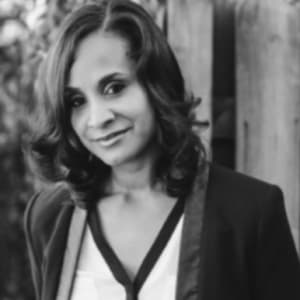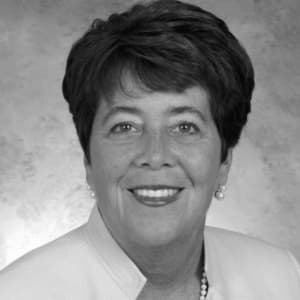Navigating Nursing as a Nurse Living With Disabilities

According to the Centers for Disease Control and Prevention, 26% of adults living in the U.S. have some type of disability. This can include challenges with mobility, cognition, hearing, vision, and self-care.
A disability may affect your career as a nurse but can also be valuable. “Living with a disability, or chronic illness, or health challenge gives us as nurses such a unique perspective,” said Leah Parker, a full-time traveling family nurse practitioner. Parker was diagnosed with rheumatoid arthritis early in her nursing career.
On this page, we discuss the common experience faced by nurses living with disabilities. Our contributors share their views on living with a disability and resources for nurses living with disabilities.
The Nursing Experience for Those Living With Disabilities
Lack of awareness and knowledge can be a breeding ground for insensitivity and rejection. Parker believes that the experience is what you make of it. Communicating with your colleagues and management is key.
Diagnosed with a progressive disease that affects her joints, Parker found that her colleagues were “loving but tough.”
“Learning to speak up for yourself early and having a good relationship with your manager is vital,” she said.
Anne Llewellyn, a brain cancer survivor, had a different experience. Llewellyn was a registered nurse (RN) for over 43 years with experience in critical care and case management. After recovery, Llewellyn now uses her expertise as an independent nurse advocate and writes a weekly blog.
She finds that nursing is versatile. You can reach your full potential with the right attitude, a good support system, and resources.
Llewellyn believes that a disability can make you a better nurse. Through the experience, a nurse may develop greater empathy. Experience also offers the opportunity to share empowering information.
“You can be an example for someone with a disability which could be a game-changer for someone who does not have the confidence in themselves,” Llewellyn said.
Common Challenges Faced by Nurses Living With Disabilities
The Americans with Disabilities Act has opened doors for nurses living with disabilities. Yet, there are still challenges within the workplace. As Llewellyn states, the challenges experienced depend on the disability. For example, nurses with nonvisible disabilities have different challenges than those with physical disabilities.
Llewellyn experienced some cognitive issues after chemotherapy. In her case, she chose to become an independent nurse advocate. She recommends nurses who go through similar mid-career life changes do the same.
“Be patient and keep your eyes and ears open for opportunities in the field you want to work in,” she advises. “Look for roles that fit your abilities and tap into your expertise.”
Parker finds another challenge is not having a flexible schedule to speak to specific needs.
Research from Mass General Brigham Institute of Health Professions suggested that nurses with disabilities sometimes fear they could interfere with patient safety. Parker’s and Llewellyn’s experiences have not supported these findings.
Parker finds that nurses living with disabilities often work harder. Llewellyn says that a nurse who acknowledges the disability would not be any more of a risk than any other nurse with regard to patient safety.
Though Progress Is Happening, Barriers Still Exist
It’s important to recognize barriers continue to exist. This includes concerns from nursing managers. One study of nursing managers gathered information from 600 hospitals. The study asked about attitudes and performance toward nurses with disabilities.
While there were some concerns related to performing certain job duties and acceptance by the public or coworkers, most rated disabled nurses’ performance as exceptional or above average. With increased cultural competence in healthcare, previous exposure to a nurse with a disability improved the manager’s willingness to hire nurses with disabilities.
Llewellyn encourages nurses to be upfront and ask for any accommodations necessary to perform the job. Since most are not costly, employers may make them. On the other hand, Parker believes some nurse managers may be uncomfortable accommodating disabilities because it might appear they were giving the nurse a better assignment.
A Sense of Belonging in the Workplace Is Crucial
The 2020 National Nursing Workforce Survey reports that 10.7% RNs said they were not working as a nurse because of a disability. But this does not reflect every experience. Others have found successful accommodation and continue to work. Experts have also suggested patients may feel more comfortable with nurses whose personal experience matches their own.
According to the National Organization of Nurses with Disabilities, some healthcare professionals with disabilities use:
- Service dogs
- Wheelchairs
- Assistive computer software
- Accessible smartphones and apps
- Other items
It is also important to note that many nurses with disabilities do not use accommodations in the workplace.
It’s Important to Know Your Rights
In 1990, Congress passed the Americans with Disability Act (ADA). This was to protect the rights of those physically disabled against discrimination. It was amended in 2008 to include those who have a physical or mental impairment. The impairment must substantially limit one or more major life activities.
The ADA Amendments Act allowed individuals to address issues, such as misconceptions or biases, that restricted students from admission to nursing programs. Llewellyn believes with the ADA in place, nurses with disabilities are more likely to find a place where they can learn, grow and thrive.
It is essential to educate managers that the competent nurse is the right nurse to hire, with or without a disability.
Finding Support as a Nurse Living With Disabilities
Llewellyn’s brain tumor was diagnosed when she was 60 years old. With a few more years before retirement, she suddenly found herself recovering from treatment and without a job.
Her husband applied for Social Security Disability Insurance, available for some disabilities. Llewellyn describes it as not an easy process. For help, her husband used Allsup, a company that helps individuals understand the process and complete the application.
When Llewellyn was ready to return to work, she faced a new problem. There was concern she could lose her disability insurance if she could not continue employment because of her disability. She would be without income and forced to apply for disability again. She then discovered Ticket to Work. This is a Social Security program that helps people living with disabilities progress toward financial independence.
Several organizations offer help if you need assistance getting accommodations at work.
- The National Organization of Nurses with Disabilities promotes equity for those who have chronic health conditions or physical disabilities.
- The Job Accommodation Network provides free, confidential, and expert guidance on unemployment issues. They also offer a list of accommodation ideas for nurses with physical disabilities.
- The What Can YOU Do? campaign is a federally funded program for disability employment. They have a list of national and local organizations to help with job searches, federal employment, and job training and preparation.
- The U.S. government disability services website has a list of federal and state programs for housing, jobs, education, and healthcare.
- The National Disability Rights Network in Washington, D.C., offers legal services for people with disabilities.
- Other local advocates and organizations can offer help negotiating accommodations for employment.
At your job, Parker suggests working closely with the Human Resources (HR) Department. HR should be well versed in federal disability laws. They can often help mediate between the nurse and manager of the unit. Llewellyn has also discovered several outside resources for nurses with disabilities.
The first is Exceptional Nurse, which was started in 2001 by an advanced practice registered nurse. The site offers resources for nurses such as equipment, latex alternatives, and uniforms. They also provide legal resources.
Llewellyn also found support through groups. Some she found on Facebook. PatientsLikeMe and Smart Patients are online communities that bring together like-minded individuals with various medical conditions.
Advice to Nurses Living With Disabilities
Parker and Llewellyn have had years of experience practicing in nursing and with a disability. They both find that the nursing field has many opportunities for nurses with disabilities.
“Flexibility has been one of the most important factors when choosing a job versus setting,” Parker said.
As is true for all workers, choosing a schedule and shift length can make all the difference in whether you can be successful in your job.
Parker’s advice to nurses or nursing students who may feel hesitant is to remember the skills you bring from your experience. Because nurses with disabilities have filled the role of patient many times, you can offer your patients the gift of empathy as a nurse.
“Empathy cannot be bought with money or learned in school — it is a gift,” Parker said. “The world needs our gift. Our patients need our gift.”
Llewellyn has found satisfaction using her skills as an independent nurse advocate. She uses her blog to educate and empower others. She also encourages nurses who have disabilities to be patient with themselves.
Llewellyn suggests nurses with disabilities who understand their functional abilities can find a role in or outside of healthcare. She suggests talking with others can sometimes help us see things that we don’t see on our own.
Because of the versatility nursing provides, if one work setting doesn’t work, Parker reminds us that the opportunities in nursing are endless.
“The best part of nursing is that the opportunities are so broad and vast,” Parker said. “If one area is not a good fit, try another!”
Meet Our Contributors

Leah Parker has been a nurse for over 20 years. She is currently a traveling family nurse practitioner. Her experience includes retail health and several years on labor and delivery units. She earned her undergraduate degree from Syracuse University and master’s degree from SUNY Upstate Medical University in Syracuse, New York. Parker was diagnosed with rheumatoid arthritis, chronic migraines, and mast cell activation syndrome.

Anne Llewellyn is a registered nurse with over 43 years of experience in critical care, risk management, patient advocacy, and case management. Llewellyn is a past president of the Case Management Society of America and was awarded their Lifetime Achievement Award in 2015. Llewellyn is a brain cancer survivor who uses her expertise as a nurse advocate. Her weekly blog helps people navigate the healthcare system.
Reviewed by:

Laila Abdalla earned her Ph.D. in English from McGill University in Montreal, Canada. She taught undergraduate and graduate courses in English and successful writing at Central Washington University for over 21 years. Abdalla has devoted her teaching and leadership to matters of equity, diversity, and inclusion. She continues to develop her own understandings of these complex issues both professionally and in her lived experiences.
Laila Abdalla is a paid member of the Red Ventures Education freelance review network.


